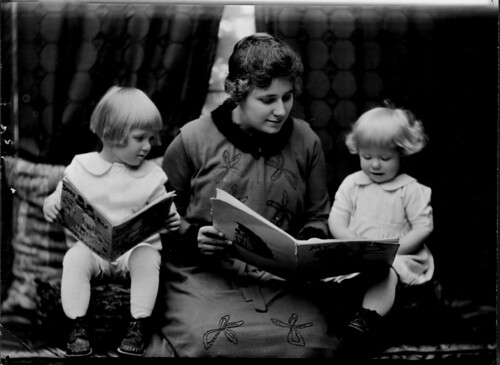Readers, Printers, and their Records
Have you ever wondered what people are reading or what was available to them to read? Amazon’s stats and the New York Times Best Sellers list makes it fairly easy to track what is popular, but these figures are largely based on sales or production runs. I’d like to suggest two sources of information for finding out what actual readers thought about books, how books and ideas influenced lives, and what was available to readers to read from the early modern period through the early 20th century. RED: The Reading Experience (http://www.open.ac.uk/Arts/reading/) documents what individuals in Great Britain and Canada actually read from...
Insights on Scholarly Publishing Opportunities
What do you do when you want to turn your research into a publishable piece of scholarship – either a book or a scholarly journal article? Perhaps your thesis was very well received by your dissertation committee and you were encouraged to seek a publisher for it; perhaps you have a research leave or are looking towards tenure or promotion as you progress in your academic career. How do you begin to get the results of your research published? What is the role of the editor, how do scholarly publishers acquire books, what do you need to do to...
12th Century Manuscript on the Pilgrimage to St. James of Compostela
Perhaps you’ve seen the recent news articles (Spanish, English, and BoingBoing post) about the recovery of a “priceless” Spanish manuscript on the history of the pilgrimage of St. James? Don’t think you’ll get to Santiago de Compostela, Spain anytime soon to make the pilgrimage yourself? You can still see a facsimile of the Codex calixtinus here in the Baylor University Libraries. We have a beautifully re-created facsimile in our Special Collections and you can arrange to see it by contacting either : Susan_Bowlin@baylor.edu (254-710-4791) or Jennifer_Borderud@baylor.edu (254-710-6677). The manuscript and our facsimile include music for the Catholic mass for...
British Documents on Foreign Affairs series
Queen Victoria’s empire was famed as an empire on which the sun never set. Looking at a map of the British Empire from 1886 shows just how diverse and widespread British rule and interests were. From about 1850 on the British Foreign Office printed important diplomatic documents to be read by the Monarch and to be shared with British diplomats. These documents represent the treaties, government proclamations, memos and reports from embassy or foreign office personnel back to the Foreign Office (FO). Selections from this “Confidential Print” series have been collected in book form in: The British Documents on...
Europeana – European culture in digital formats
Europeana is an entryway for European culture in digital format. Launched in November 2008 Europeana now includes 110 cooperating institutions (museums; libraries, archives; cinema, sound, and image repositories; and research institutions) from more than 30 countries. Formats include images, texts, sound, and video. Do you want to know what a sovereign coin minted in Henry VIII’s time looked like? Curious about what a nightingale’s song really sounds like after reading Keats’ ode? Want to see film clips of French film noir? Search in Europeana. Some of the current hightlights include wedding pictures from Eastern Europe; an online exhibition of...
Digital Editions and the Rotunda Collection
In terms of the spread and ease of access to information we are definitely living in “interesting times.” Despite the wide use of the Internet, digital texts, and various media other than the printed text, there is a divide between those who use it, those who don’t, and an even greater one, perhaps, for those who create it. I’ve often found that in the early enthusiasm of bringing traditional print resources online, we haven’t stopped to think about how you would or could alter them to be better, but just reproduced what existed in print in order to get...



